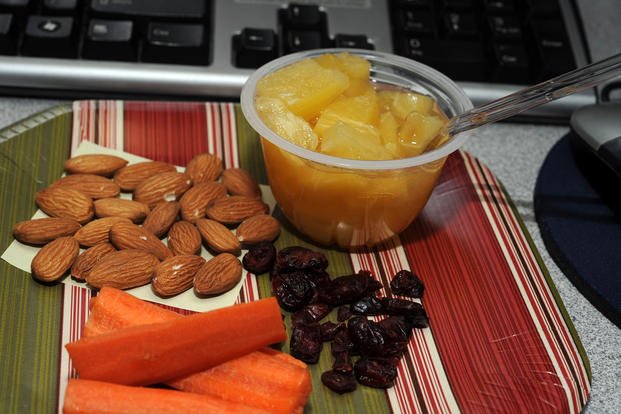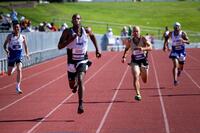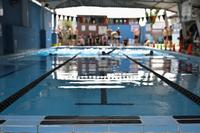How do you perform your best daily?
"Recovery and maintenance." You hear these terms often in just about every area of our lives: from improving your fitness and athletic performance and handling stressful professions to maintaining your health with a strong immune system. Typically, most people in the military/law enforcement fitness and health genre ask about how to get stronger for Fitness Tests while working long, stressful hours. Many military members and police officers recently have asked about recovery and maintenance plans to better perform at their job in combat situations.
Here is a sample email from a Marine who asks a familiar question: "Any advice for what should be staple supplements in addition to a healthy diet when looking to gain size, strength and aid in recovery?"
Yes, many of us want to get bigger, stronger and faster and have energy to live another day. Part of the answer to the question above is in the question, but true recovery comes in several critical areas. If one is lacking, your fitness, nutrition, maintenance, performance training plan and overall health can be in jeopardy of yielding less than optimal results.
Life in general, hard workouts and stressful professions involved in life-and-death situations create a rush of stress hormones that the body has to deal with to create a healthy, living organism. The effects of some of these hormones, such as cortisol and adrenaline, create immediate survival mode energy. It does not matter if you are worrying about not being able to pay a bill or having bullets shot at you, the same stress hormones create alertness and energy to deal with the problems. These hormones also can be detrimental to your recovery and well-being if not dealt with properly. For instance, stress and stress hormones:
- Suppress the digestive system
- Alter the immune system
- Weaken the reproductive system
- Decrease the muscle growth
- And control mood, motivation and fear
However, the following areas are recommended for true recovery and maintenance from stress:
Food
What you put into your body matters for mind and body performance, as well as your ability to recover. Foods rich in protein/good fats (amino acids, omega 3 fatty acids), carbohydrates (fruits, vegetables, antioxidants, multigrains) are required for you to deal healthfully with balancing out the stress hormones in our bodies.
Great samples of protein/good fats:
- Boiled eggs
- Nuts -- peanuts, almonds, etc. Sources of good fats, too.
- Beef jerky -- watch for MSG
- Salmon, tuna and chicken -- sources of good fats, too.
- Peanut butter packages
For carbs:
- Any fruit -- banana, apple, orange, grapes, etc.
- Vegetables -- carrots, green leafy items
- Multigrain breads/pastas -- also source of protein
What about supplements?
I am not a fan of supplements. For me personally, a multivitamin and omega-3 caplet and just good eating are the best things for recovery from stress and workouts.
Every now and then, when I cannot get real food, I will drink Muscle Milk or a whey protein shake. I like to drink chocolate milk after a long and hard workout as it replenishes sugar, proteins and fat quickly and easily. I basically treat supplements the same way I do MREs. I would not eat an MRE if I had a restaurant/cafeteria available, but when it is the only thing I can eat for a meal or snack, I will grab a supplement drink or bar. Eating more calories per day (good calories of carbs, fat, protein) along with workouts will increase weight. Those who have difficulty gaining strength or size typically need to add carbs and protein to their diets and focus on sleep and proper recovery between workouts.
Hydration
Being dehydrated increases cortisol levels and stresses the body. Also electrolyte imbalances will create fatigue and an inability to function mentally or physically. After sweaty workouts, I like to eat a can of chicken noodle soup as it is loaded with potassium (3-4 times that of a banana, plus protein/carbs). Those are my only supplements I use regularly.
Water is the best source of hydration, but the body will pull water from nearly everything that enters it. However, foods and drinks high in caffeine, nicotine and alcohol negatively affect your hydration levels as well as increase stress hormone levels. A general rule of thumb for active people is 50%-75% body weight in pounds = ounces per day of H2O.
Sleep
The best training plans will not work if sleep and rest between workouts are neglected. Without adequate sleep (eight hours a night), there is not enough rest for muscle cell growth and repair. In fact, when you sleep, growth hormone is produced and protein synthesis in the muscles occurs if you eat foods with protein during the day. For adolescents especially, sleep is critical as growth can be impaired if quality and quantity of sleep is lacking.
Lack of sleep also can affect your mood and increase hormonal stress levels, which will have a negative impact on performance. Now, one night of missed sleep is not going to have many negative effects on your performance, but several days in a row or a few weeks of interrupted sleep can lead to similar symptoms of a stressed-out/overtraining syndrome.
In the military or law enforcement professions, sleep may not occur at regular intervals and the quality may be lacking. But those who work hard during the day or exercise will have an easier time falling asleep compared to those who do not.
Exercise or hard physical work
Exercise and physical work are great outlets for stress to be released from the body. The body produces stress hormones in order for the body to react and survive. If you do not physically release these stress hormones, they will interrupt your sleep and long-term health.
Clear your mind of intrusive thoughts
One trick is to go to a "happy place" and breathe deep, slow breaths when you are bombarded by stressful thoughts that may or may not occur or have occurred in the past. Your body will react to your brain imagining negative thoughts and keep stress hormones racing through your body. Reverse the trend and think relaxing thoughts of a favorite place, time, event and revisit that. If that does not work for long, write down your to-do list/what bothers you and get it out of your head and you will be less stressed.
Recovery
In order to maintain health and fitness levels or build upon current levels, you have to rest, eat properly and balance your workouts with periodization programming. Thoroughly understanding cycles of peak performance, maintenance and recovery are critical to your long-term health and longevity.
Stew Smith is a former Navy SEAL and fitness author certified as a Strength and Conditioning Specialist (CSCS) with the National Strength and Conditioning Association. Visit his Fitness eBook store if you're looking to start a workout program to create a healthy lifestyle. Send your fitness questions to stew@stewsmith.com.
Want to Learn More About Military Life?
Whether you're thinking of joining the military, looking for fitness and basic training tips, or keeping up with military life and benefits, Military.com has you covered. Subscribe to Military.com to have military news, updates and resources delivered directly to your inbox.



















